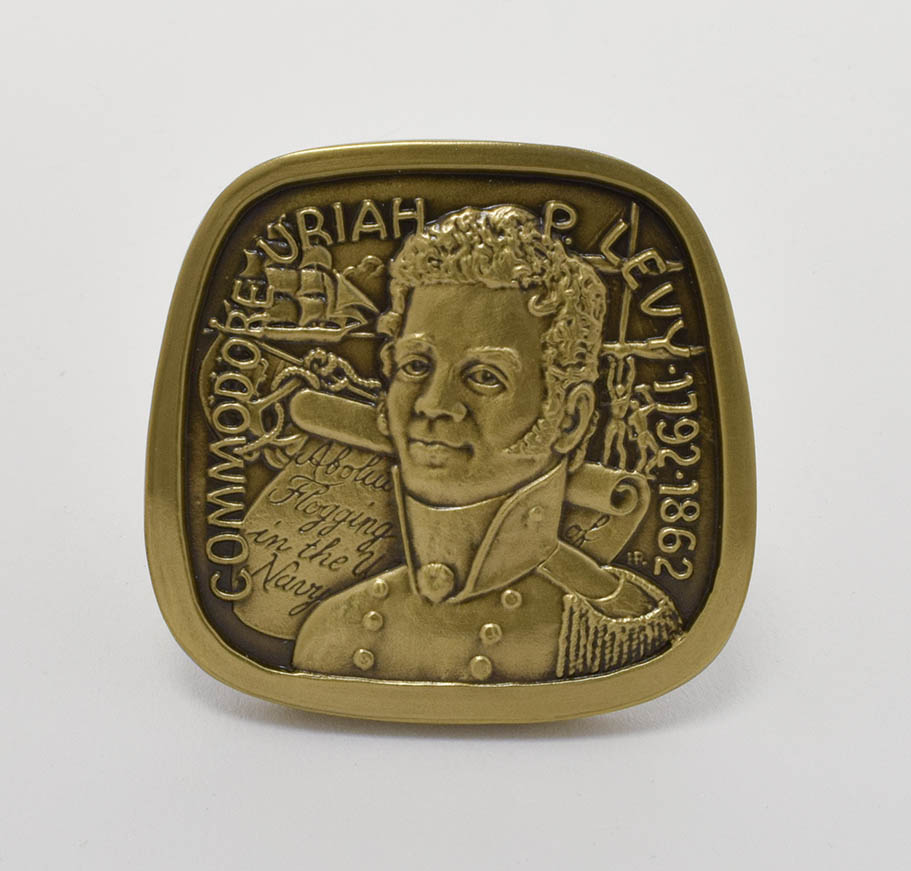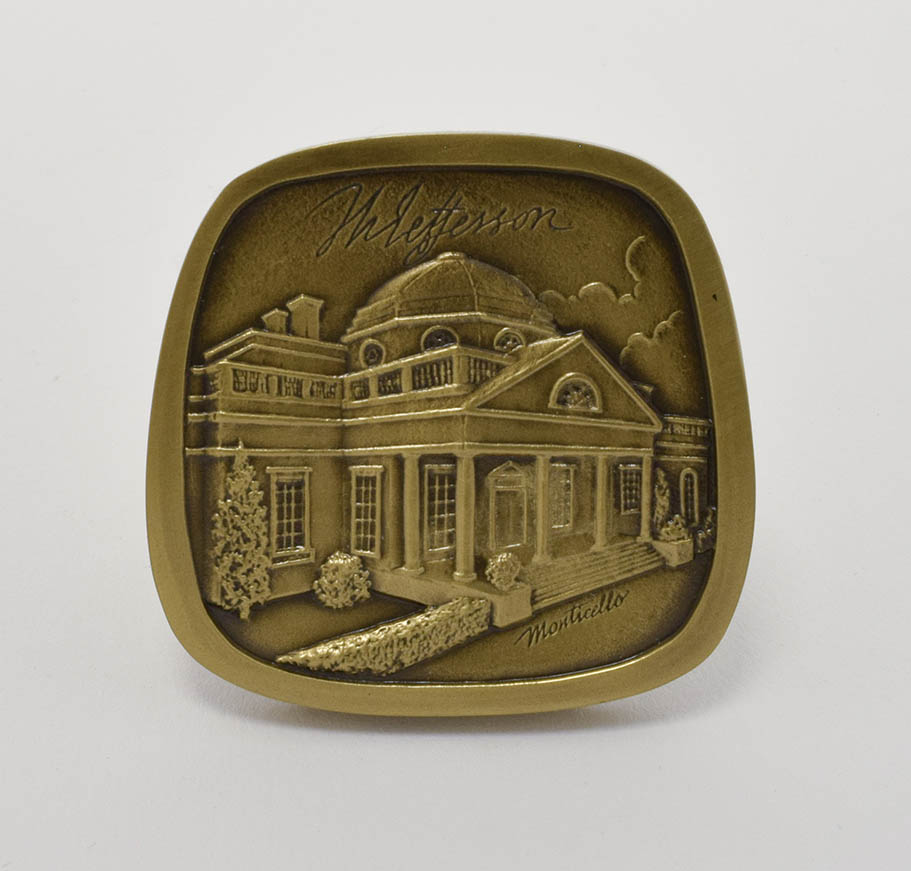Uriah P. Levy (1792–1862)
Hal Reed (Oklahoma 1921-California 2003)
USA, 1988
Bronze, h. 1 ¾ x w. 1 ¾ in.
Cincinnati Skirball Museum, Jewish-American Hall of Fame Collection, gift of Mel and Esther Wacks, Debra Wacks, and Shari Wacks, 2019.7.39
40 years before French army officer Alfred Dreyfus was court-martialed, convicted, and eventually exonerated in trials based on anti-Semitism, an American naval officer faced similar tribulations. The American court’s verdict was unanimous for the 63-year-old defendant: “Uriah P. Levy is morally, mentally, physically and professionally fit for the Naval Service and ought to be restored to the active list of the Navy.” Within five years of his court-martial, Levy was placed in command of the entire Mediterranean Fleet and was elevated to the Navy’s highest rank, Commodore. Born in Philadelphia, Levy was barely 14 years old when he embarked on his naval career by signing on as a cabin boy. Seven years later he volunteered for service in the United States Navy during the War of 1812. The next year Levy was captured and imprisoned by the British until the end of the war. In the years following, he faced persecution from many naval officers, defended himself in a duel, and was subjected to a total of six courts martial, all instigated by anti-Semitism. Throughout his life, Levy was active in religious life; he was the first president of the Washington Hebrew Congregation. Levy wanted to be remembered for his efforts to abolish the barbarous punishment of flogging in the U.S. Navy. Congress approved an anti-flogging bill in 1850.


